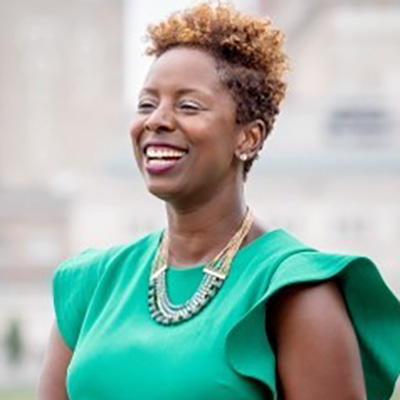
Andrea W. Stubbs
PhD in Social and Behavioral Sciences
For almost two decades, I have attained a wide range of community-based experience, clinical training, and graduate education that has fueled my interest to focus on disease prevention and management within disparate and minority communities. As manager of HIV Community Programs for the St. Jude Children’s Research Hospital’s (St. Jude) Comprehensive HIV Prevention and Care Program, I learned early in my career that promoting health in hard-to-reach communities required me to be adept at investigating salient problems and realistic solutions and energizing key allies and gatekeepers to make appropriate changes.
In this role, I mobilized a 25-member (e.g., faith-based leaders, community-based organizations, grassroots organizations, local health department staff, schools, universities, and community activists) community-based HIV/AIDS research coalition to prevent further spread of HIV/AIDS through program- and policy-level structural interventions. This required an intricate balance and understanding of organizational and community needs. I served as a community research translator, bridging the gap between research (e.g., biomedical and behavioral interventions) and applied services (i.e., delivery or lack thereof, prevention modalities). Through these collaborative partnerships, I was able to 1) strengthen recruitment and retention of HIV-infected and at-risk HIV-uninfected youth into biomedical clinical trials; 2) expand community linkages that maintain a community-based primary prevention infrastructure; and 3) use the collective skills and resources of coalition members as a gateway to implement academic-community-clinical protocols. Along with coalition members, I facilitated several conceptualizations of community-based participatory research studies with academic partners from the University of Memphis, Vanderbilt University, and St. Jude. Our last significant accomplishment, before I was promoted to a new role at St. Jude, was developing an ending the HIV epidemic community action plan.
My experience has taught me that a robust response to health disparities and inequities requires an approach grounded in scientific research, a thorough assessment of the needs, and a selection of the appropriate interventions. I used these methods to connect scientific research efforts with community efforts to identify theories to best understand how to address the social influences impacting high disease rates such as HIV. I also recognize that human behavior is a major catalyst in changing health outcomes. Yet, there are social and environmental factors that impact personal thoughts, decisions, interactions, and actions toward change. This is what drew me to pursue a PhD in social and behavioral sciences, and I hope to continue to contribute to the body of research that leads to better health outcomes once I complete my studies.
It has not been easy balancing a full-time leadership position (Administrative Director, HPV Cancer Prevention Program) and pursuing a PhD in Public Health, but it has been worth it. My passion and drive keep me focused on completing the necessary requirements to earn the degree, and from a practical standpoint, I openly communicate with my professors and peers about deadlines that are not as easy to manage. It has also been helpful that my instructors are available on the weekends when I prioritize completing my assignments. I also have a great preceptor who helps me to see the light at the end of the tunnel.

